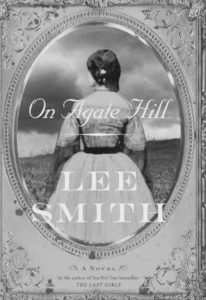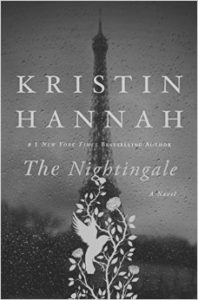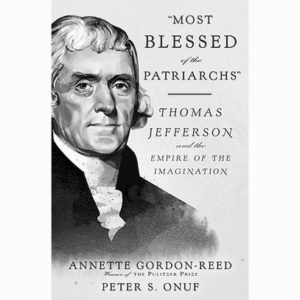By Suzanne Nash
 Mornings are still a bit cool so it is the perfect time to curl up in bed on my days off with a cup of tea and a few good books to start the day.
Mornings are still a bit cool so it is the perfect time to curl up in bed on my days off with a cup of tea and a few good books to start the day.
Lee Smith’s On Agate Hill is a great book to start the day and ease into the hot summer days which will quickly descend upon us. Southern literature is one of my favorite genres and Lee Smith is a master of a good Southern tale. Molly Petree, Lee’s protagonist, is a curious, funny and independent character who provides a moving glimpse into the post-Civil War South. Struggling with poverty, depression and defeat, the South had many young girls who, like Molly, were orphaned and sent to live with distant relatives. Those relatives were often in shock after their defeat and found life after the war difficult. Once prosperous and confident families were left in tatters and that is fully realized in Molly’s relationship with the “ghosts” residing on Agate Hill. These families are constantly haunted by the life and people that are now lost to them. Molly feels so connected to these ghosts and doesn’t want to abandon them when she is sent away from Agate Hill. Molly could have lost every opportunity for a better life if she hadn’t had the patronage of Simon Black, a brooding and mysterious presence that rescues Molly and gives her the much needed opportunity for an education and eventually leads her to a teaching position in the mountains of North Carolina. The setting for the novel feels very familiar, traveling though both North Carolina and Virginia you will recognize the towns and historical places. It has a wonderful juxtaposition of letters, diary entries and testimonies and even throws in a murder mystery to tantalize the reader. It is a stirring look at the reconstructed South and Smith does a marvelous job conveying the air of defeat, decay and impending crumbling ruin that overtook many of the old Southern plantations and families. I have always enjoyed Lee Smith’s writing and this is just one more example of why she continues to draw me into her stories.
 If you are in the mood for yet another World War II novel, you can’t go wrong with the latest best-seller, The Nightingale by Kirsten Hannah. I have been listening to this as a book on tape at every available opportunity…while cooking, cleaning and driving. All of us deal with stress and danger in different ways and this novel tells the story of two sisters who must discover their own paths to overcome adversity and survive. Set against the backdrop of a France which is reeling from the Nazi’s occupation, this family has to find a way to persevere. Viann is the dependable older sister who adores her husband, Antoine, and daughter, Sophia. When Antoine is captured and imprisoned, Viann faces loneliness and despair coupled with the frustration of having her home requisitioned as quarters for an enemy soldier. Meanwhile her sister, Isabelle, is eighteen and full of anger and rebellion. Isabelle’s passion and determination lead her down a different path from her sister and places her in a dangerous position within the French resistance. This is the story of two women’s war against occupation and dominance. Beautifully written, it captures the resilience of the human spirit. All of the full details indicate a remarkable amount of research but beyond the details there is brilliant storytelling at work here.
If you are in the mood for yet another World War II novel, you can’t go wrong with the latest best-seller, The Nightingale by Kirsten Hannah. I have been listening to this as a book on tape at every available opportunity…while cooking, cleaning and driving. All of us deal with stress and danger in different ways and this novel tells the story of two sisters who must discover their own paths to overcome adversity and survive. Set against the backdrop of a France which is reeling from the Nazi’s occupation, this family has to find a way to persevere. Viann is the dependable older sister who adores her husband, Antoine, and daughter, Sophia. When Antoine is captured and imprisoned, Viann faces loneliness and despair coupled with the frustration of having her home requisitioned as quarters for an enemy soldier. Meanwhile her sister, Isabelle, is eighteen and full of anger and rebellion. Isabelle’s passion and determination lead her down a different path from her sister and places her in a dangerous position within the French resistance. This is the story of two women’s war against occupation and dominance. Beautifully written, it captures the resilience of the human spirit. All of the full details indicate a remarkable amount of research but beyond the details there is brilliant storytelling at work here.
Next time we will explore the beach reads and get ready for a summer full of hot days and poolside adventures!
 A groundbreaking work of history that explicates Thomas Jefferson’s vision of himself, the American Revolution, Christianity, slavery, and race.
A groundbreaking work of history that explicates Thomas Jefferson’s vision of himself, the American Revolution, Christianity, slavery, and race.
Thomas Jefferson is often portrayed as a hopelessly enigmatic figure—a riddle—a man so riven with contradictions that he is almost impossible to know. Lauded as the most articulate voice of American freedom and equality, even as he held people—including his own family—in bondage, Jefferson is variably described as a hypocrite, an atheist, or a simple-minded proponent of limited government who expected all Americans to be farmers forever.
Now, Annette Gordon-Reed teams up with America’s leading Jefferson scholar, Peter S. Onuf, to present an absorbing and revealing character study that dispels the many clichés that have accrued over the years about our third president. Challenging the widely prevalent belief that Jefferson remains so opaque as to be unknowable, the authors—through their careful analysis, painstaking research, and vivid prose—create a portrait of Jefferson, as he might have painted himself, one “comprised of equal parts sun and shadow” (Jane Kamensky).
Tracing Jefferson’s philosophical development from youth to old age, the authors explore what they call the “empire” of Jefferson’s imagination—an expansive state of mind born of his origins in a slave society, his intellectual influences, and the vaulting ambition that propelled him into public life as a modern avatar of the Enlightenment who, at the same time, likened himself to a figure of old—”the most blessed of the patriarchs.” Indeed, Jefferson saw himself as a “patriarch,” not just to his country and mountain-like home at Monticello but also to his family, the white half that he loved so publicly, as well as to the black side that he claimed to love, a contradiction of extraordinary historical magnitude.
Divided into three sections, “Most Blessed of the Patriarchs” reveals a striking personal dimension to his life. Part I, “Patriarch,” explores Jeffersons’s origins in Virgina; Part II, ” ‘Traveller,’ ” covers his five-year sojourn to Paris; and Part III, “Enthusiast,” delves insightfully into the Virginian’s views on Christianity, slavery, and race. We see not just his ideas and vision of America but come to know him in an almost familial way, such as through the importance of music in his life.
“Most Blessed of the Patriarchs” fundamentally challenges much of what we’ve come to accept about Jefferson, neither hypocrite nor saint, atheist nor fundamentalist. Gordon-Reed and Onuf, through a close reading of Jefferson’s own words, reintroduce us all to our most influential founding father: a man more gifted than most, but complicated in just the ways we all are.


